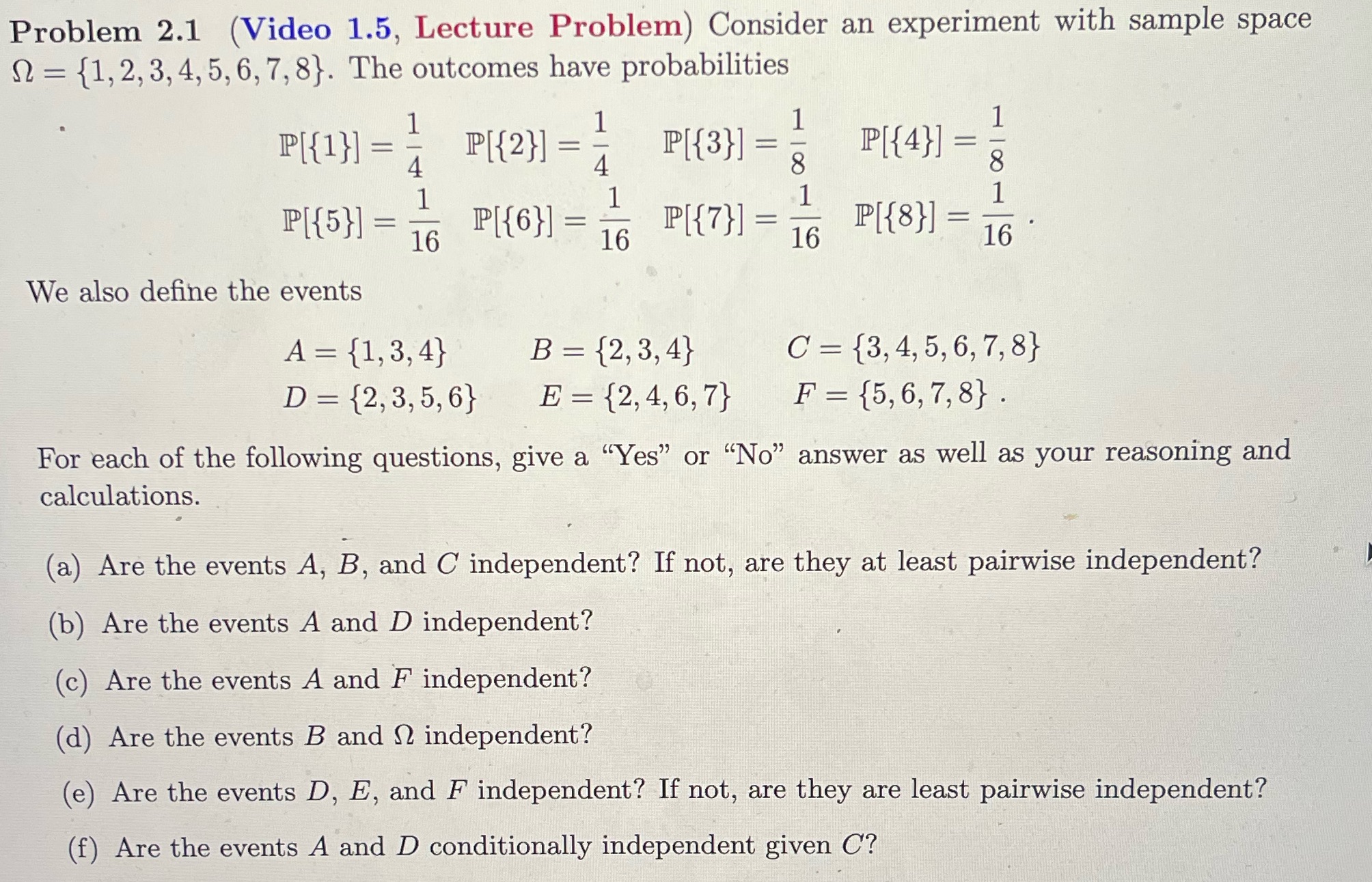Answered step by step
Verified Expert Solution
Question
1 Approved Answer
Problem 2.1 (Video 1.5, Lecture Problem) Consider an experiment with sample space = {1, 2, 3, 4, 5, 6, 7, 8}. The outcomes have

Problem 2.1 (Video 1.5, Lecture Problem) Consider an experiment with sample space = {1, 2, 3, 4, 5, 6, 7, 8}. The outcomes have probabilities 1 1 1 P[{1}] = = P[{2}] = P[{3}] = P[{4}] = 4 4 8 8 1 1 1 1 P[{5}]= = P[{6}] = P[{7}] = P[{8}] = 16 16 16 16 We also define the events A = {1,3,4} B = {2, 3, 4} C= {3, 4, 5, 6, 7, 8} D= {2,3,5,6} E = {2,4,6, 7} F = {5,6,7,8} . answer as well as your reasoning and For each of the following questions, give a "Yes" or "No" calculations. (a) Are the events A, B, and C independent? If not, are they at least pairwise independent? (b) Are the events A and D independent? (c) Are the events A and F independent? (d) Are the events B and 2 independent? (e) Are the events D, E, and F independent? If not, are they are least pairwise independent? (f) Are the events A and D conditionally independent given C?
Step by Step Solution
There are 3 Steps involved in it
Step: 1

Get Instant Access to Expert-Tailored Solutions
See step-by-step solutions with expert insights and AI powered tools for academic success
Step: 2

Step: 3

Ace Your Homework with AI
Get the answers you need in no time with our AI-driven, step-by-step assistance
Get Started


